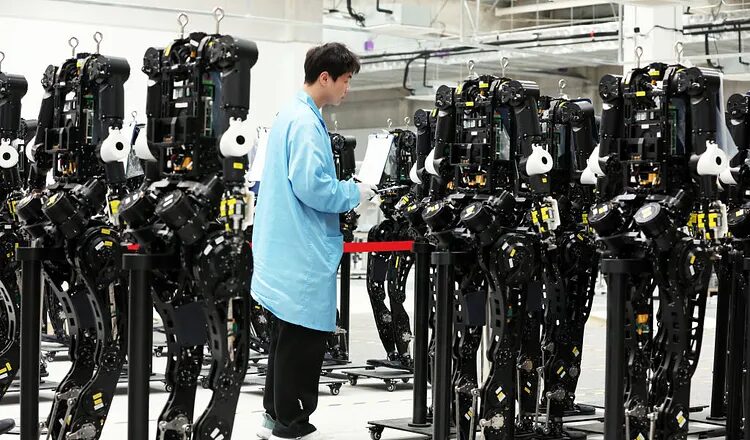
Patrick McGee: China’s Robots vs. America’s Chatbots
In his latest article for The Free Press, WWSG exclusive thought leader Patrick McGee argues that the global AI competition isn’t just about building the…
Thought Leader: Patrick McGee

The motivations behind Russian President Vladimir Putin’s brutal and illegal invasion of Ukraine are unclear, but nothing could be clearer than his power over Europe because of its dependence on his oil and gas. Major economies in the West need fossil fuels piped in from the East, so Putin has the leverage — and the money — to undermine the security and economic independence of our allies.
Putin believed that, because of its reliance on Russia’s fossil fuels, Europe would not take any strong, united action against his unprovoked invasion of a democratic nation. The fact that this was a gross miscalculation by Putin doesn’t negate that it was a calculation that helped start an unjust and horrific war.
The way to fight Putin, in the long run, is to shift the world economy away from the oil and gas that keeps him affluent, armed and arrogant. Whatever we do in the days ahead to support our European allies — and we should do everything we can — we must also move swiftly to end the world’s addiction to fossil fuels.
This was exactly the calculation when, as secretary of the Navy, I moved the Navy and Marines off much of their use of fossil fuels as a warfighting measure. This was the point I made to military leaders of our European allies about the huge vulnerability their reliance on Russian oil and gas caused. Putin boasted in 2010 that, even if Europe used firewood for fuel, they would “have to go to Siberia to buy the firewood.”
But barely 24 hours after Russian troops crossed the border into Ukraine, some supporters of former President Trump started making an argument so bizarrely contrary to the truth that George Orwell would have rejected it as too laughable. Somehow, their argument goes: President Biden’s work to move the world to home-grown clean energy like wind and solar — and to remove the very leverage that gives Putin much of his power — enabled the invasion of Ukraine.
In their view, the way to blunt Putin is to actually increase the world’s dependence on the oil and gas that is his regime’s primary source of wealth and power. The United States, by marginally increasing its output of fossil fuels, would ostensibly gain leverage over Russia.
Of course, the exact opposite is true. Only by pushing the world economy to renewable sources like wind and solar — which are controlled locally and essentially bulletproof from foreign manipulation — can nations regain their economic sovereignty. Europe already understands this: Many nations there are getting between one-quarter and one-third of their electricity from renewables.
Their argument goes further into absurdity by claiming that by opening up pristine wilderness areas to drilling for oil and gas, former President Trump created an American energy powerhouse and lowered energy prices. This does not have the advantage of being true. Anyone who made it through even the first two weeks of Econ 101 knows that oil prices are set on the world market. Leases opened in the last few years can’t possibly have caused more than a tiny impact on the price of a barrel of oil, if that.
What does drive up the price of oil is instability. The kind that’s caused by an irrational war in the heart of Europe waged by an unstable leader. Instability driven by climate refugees, hurricanes, famine and drought. The kind that will be ever more common in a hotter, stormier world.
Biden’s leadership to move us away from fossil fuels and toward clean energy is exactly what’s needed to protect our national security and regain our energy independence. Climate change is a national security issue. Our dependence on fossil fuels is a national security issue. This administration’s actions are long overdue and will move us toward a more stable, healthier, safer world.
Ray Mabus is a former secretary of the Navy, U.S. Ambassador to Saudi Arabia and governor of Mississippi.
Patrick McGee: China’s Robots vs. America’s Chatbots
In his latest article for The Free Press, WWSG exclusive thought leader Patrick McGee argues that the global AI competition isn’t just about building the…
Thought Leader: Patrick McGee
John Kelly: The Impact of Veterans
10News Anchor John Becker sits down with Gen. John F. Kelly to chat about the impact of veterans and how they work to serve their…
Thought Leader: John Kelly
Erika Ayers Badan: How Great Teams Actually Work
On this episode of Unsolicited Advice, we talk about what actually makes teams work. How clarity beats charisma. Why initiative matters more than experience. Why…
Thought Leader: Erika Ayers Badan

